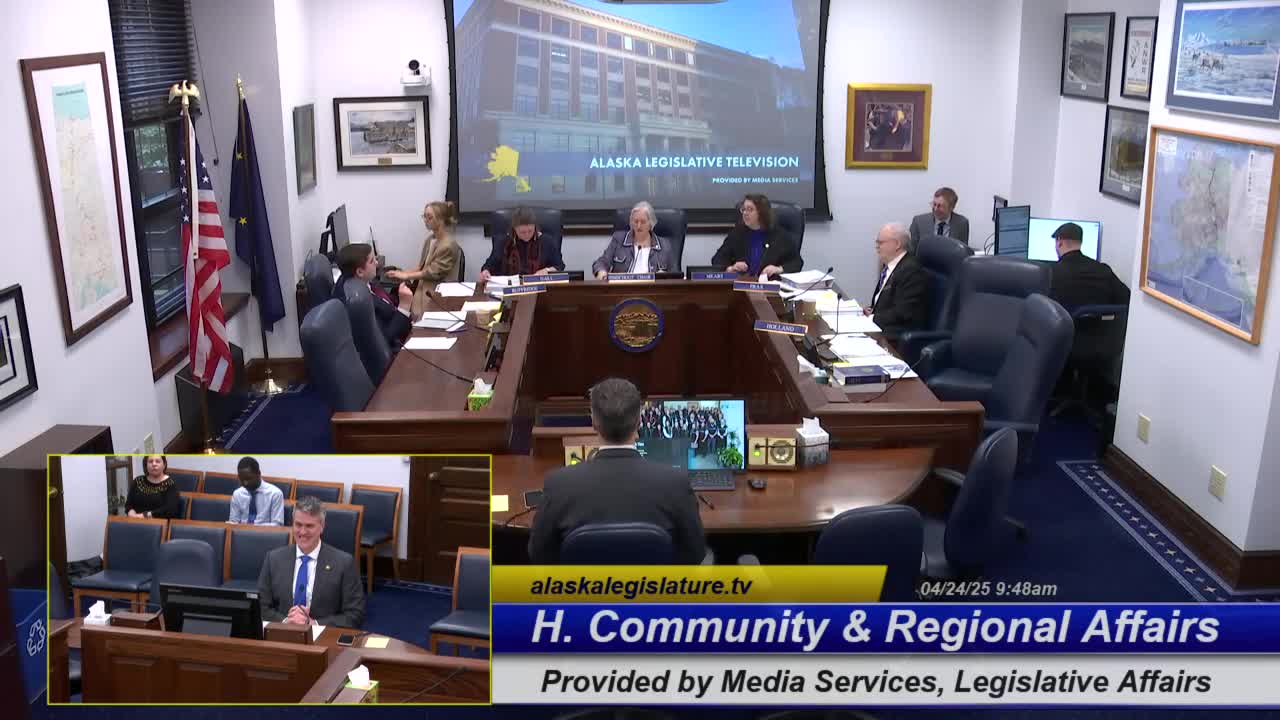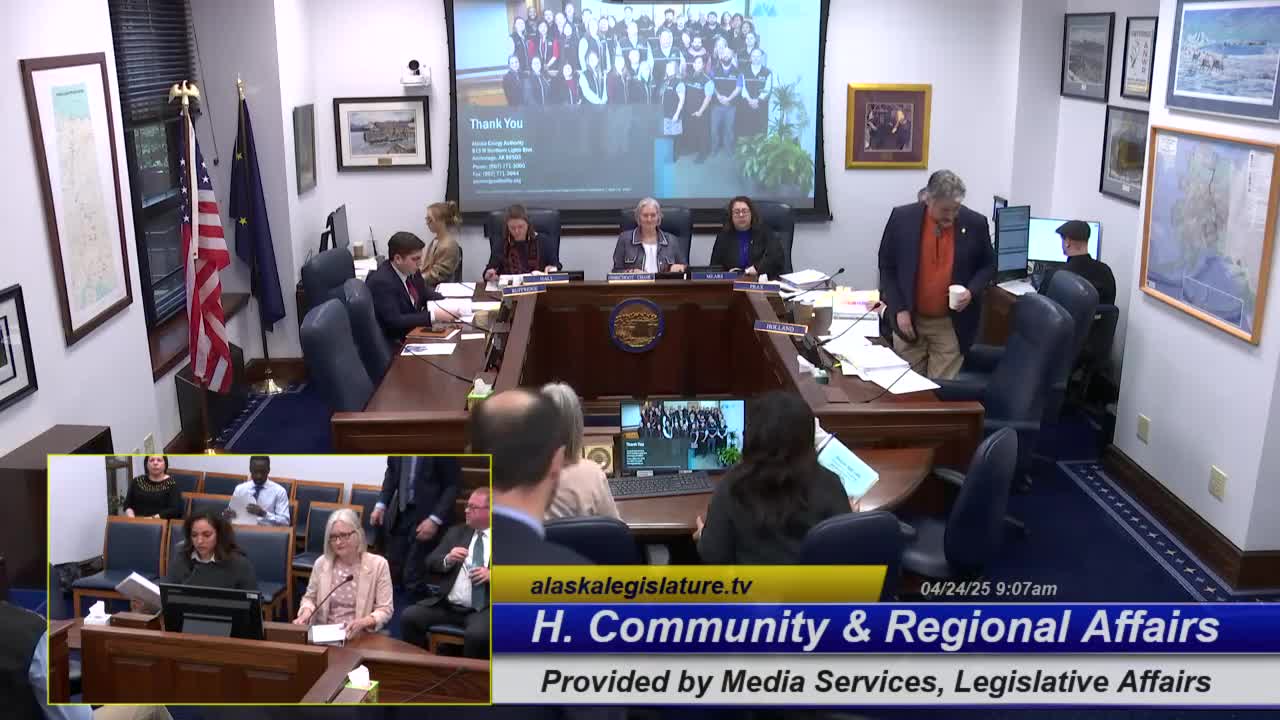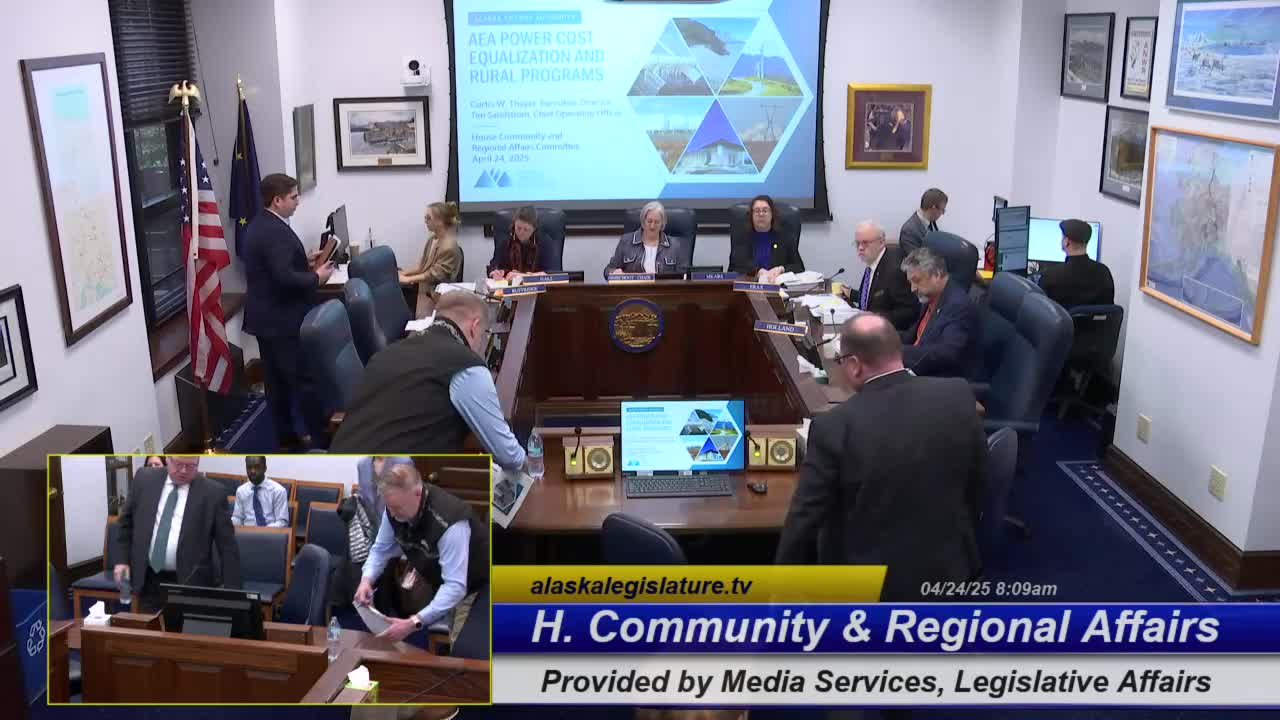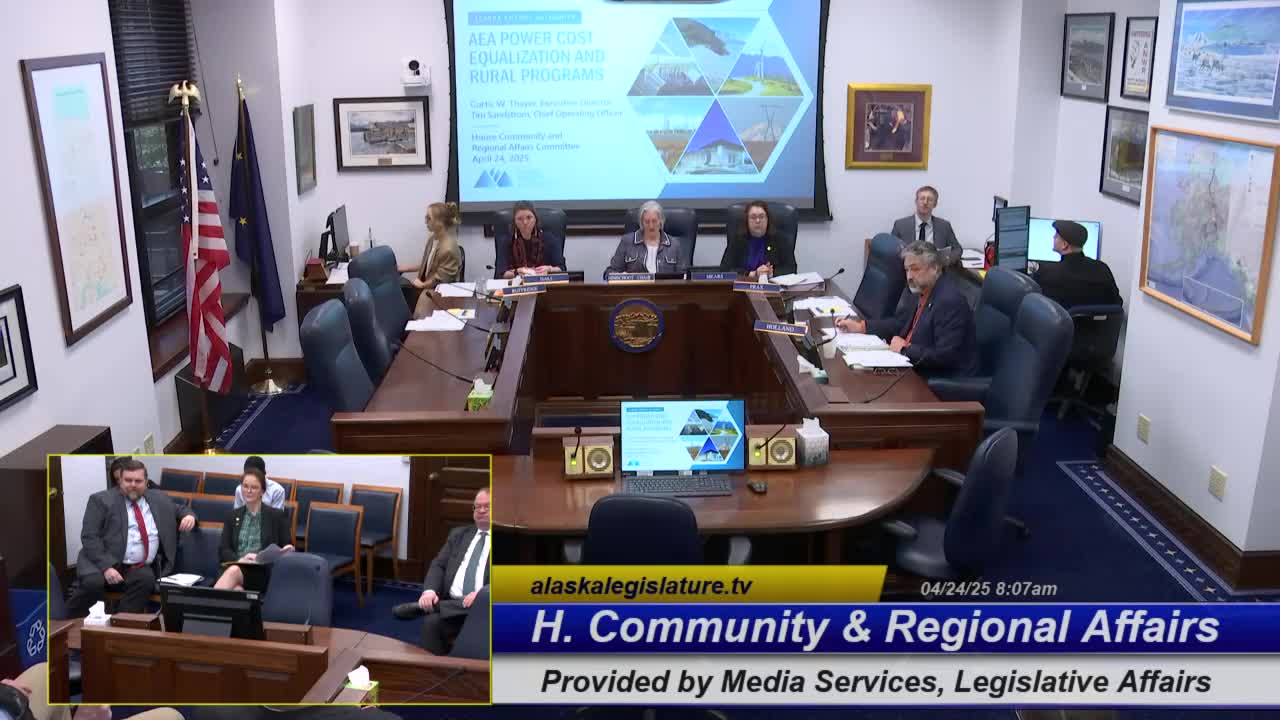Article not found
This article is no longer available. But don't worry—we've gathered other articles that discuss the same topic.

Committee advances bill allowing local property tax exemptions after contentious amendment votes

House committee hears bill to let AIDEA finance workforce multifamily housing

Alaska Energy Authority details strain on rural power systems, urges funding to stabilize Power Cost Equalization

